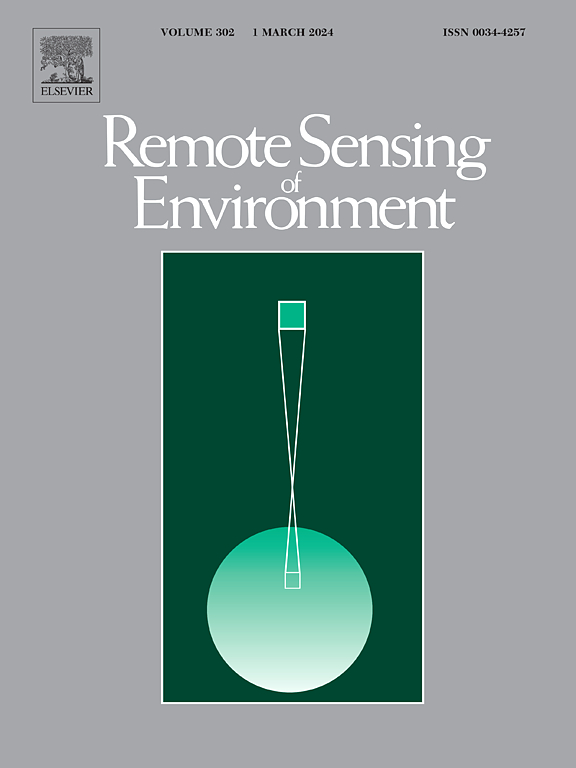Integrating InSAR and non-rigid optical pixel offsets to explore the kinematic behaviors of the Lanuza complex landslide
IF 11.1
1区 地球科学
Q1 ENVIRONMENTAL SCIENCES
引用次数: 0
Abstract
InSAR and optical pixel offset tracking (POT) are two efficient tools for monitoring landslide displacements, but limitations in resolving 3D displacements constrain the full exploration of kinematic behaviors, especially for complex landslides exhibiting diverse movement types. In this study, we propose a technical route that combines SAR and optical images to reveal the spatiotemporal evolution of the Lanuza landslide (Spain). In the temporal domain, ascending and descending Sentinel-1 SAR images were acquired to retrieve the line-of-sight (LOS) displacements. STL and cross wavelet transform were integrated to calculate the time lag between displacements and environmental factors. In the spatial domain, a two-stage method combining feature point matching and DeepFlow (FPM-DF) was proposed to retrieve the non-rigid horizontal displacements from optical images. A strain model and Bayesian inversion framework (SM-BIF) were integrated to invert 3D displacement fields. The mass conservation method was subsequently applied to estimate the landslide thickness. The results indicate that (1) the periodic terms of displacement are in phase with the freeze-thaw cycle of solifluction, which can intensify earthflow movement. (2) FPM-DF method is more efficient than the traditional POT method, especially for small-scale displacement fields, achieving reductions of standard deviations by 38 % and 51 % in the EW and NS directions, respectively. (3) the SM-BIF method reduces the maximum standard deviations of the 3D displacement field compared to the SM-VCE method, and the maximum thickness of the earthflow is approximately 22 m. This study can provide valuable insights into comprehensive monitoring of complex landslides with multi-platform remote sensing datasets.
求助全文
约1分钟内获得全文
求助全文
来源期刊

Remote Sensing of Environment
环境科学-成像科学与照相技术
CiteScore
25.10
自引率
8.90%
发文量
455
审稿时长
53 days
期刊介绍:
Remote Sensing of Environment (RSE) serves the Earth observation community by disseminating results on the theory, science, applications, and technology that contribute to advancing the field of remote sensing. With a thoroughly interdisciplinary approach, RSE encompasses terrestrial, oceanic, and atmospheric sensing.
The journal emphasizes biophysical and quantitative approaches to remote sensing at local to global scales, covering a diverse range of applications and techniques.
RSE serves as a vital platform for the exchange of knowledge and advancements in the dynamic field of remote sensing.
 求助内容:
求助内容: 应助结果提醒方式:
应助结果提醒方式:


